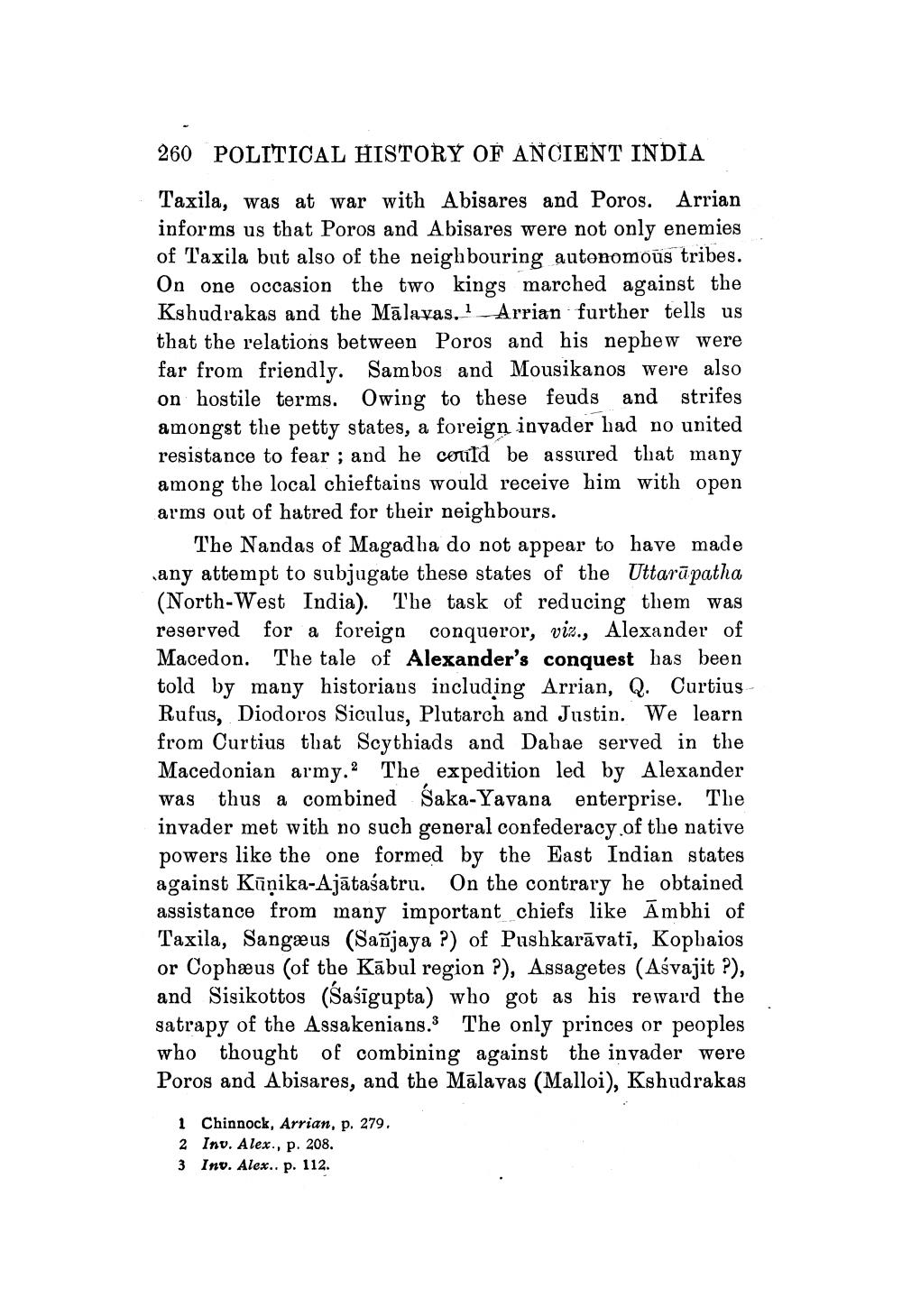________________
260 POLITICAL HISTORY OF ANCIENT INDIA
Taxila, was at war with Abisares and Poros. Arrian informs us that Poros and Abisares were not only enemies of Taxila but also of the neighbouring autonomous tribes. On one occasion the two kings marched against the Kshudrakas and the Mālavas. Arrian further tells us that the relations between Poros and his nephew were far from friendly. Sambos and Mousikanos were also on hostile terms. Owing to these feuds and strifes amongst the petty states, a foreign invader had no united resistance to fear; and he could be assured that many among the local chieftains would receive him with open arms out of hatred for their neighbours.
The Nandas of Magadha do not appear to have made any attempt to subjugate these states of the Uttarāpatha (North-West India). The task of reducing them was reserved for a foreign conqueror, viz., Alexander of Macedon. The tale of Alexander's conquest has been told by many historians including Arrian, Q. Curtius Rufus, Diodoros Siculus, Plutarch and Justin. We learn from Curtius that Scythiads and Dahae served in the Macedonian army. The expedition led by Alexander was thus a combined Saka-Yavana enterprise. The invader met with no such general confederacy of the native powers like the one formed by the East Indian states against Kūnika-Ajātasatru. On the contrary he obtained assistance from many important chiefs like Āmbhi of Taxila, Sangæus (Sanjaya ?) of Pushkarāvati, Kophaios or Cophæus (of the Kābul region ?), Assagetes (Aśvajit ?), and Sisikottos (Saśīgupta) who got as his reward the satrapy of the Assakenians. The only princes or peoples who thought of combining against the invader were Poros and Abisares, and the Mālavas (Malloi), Kshudrakas
1 Chinnock, Arrian, p. 279. 2 Inv. Alex., p. 208. 3 Inv. Alex.. p. 112.




